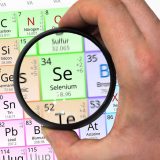Your television, laptop, cell phone, mp3 player, modem, gaming console, PDA, cable box, fax machine or any other plugged-in device could be at the root of your fatigue. Experts agree that the number one cause of fatigue is poor sleep. According to the National Institutes of Health, one in three adults has occasional insomnia and one in 10 adults suffers from chronic sleeplessness. Thus, solutions to improve sleep could bring relief to over a quarter of Americans. One solution that is being increasingly recognized is removing or powering down all electronics in your close vicinity prior to bedtime.
Fixing insomnia can be elusive, complex and costly, but sometimes it can be relatively simple. By helping people see that our society’s increasing dependence on electronic technology impairs slumber, more individuals can take corrective action to eliminate their daily fatigue.
Electronics keep us connected via email, interactive video games, the internet, music or TV; but their stimulation, glow and energy field prevents us from falling asleep and sleeping soundly.
Stimulation
According to Mark Rosekind, PhD, former director of the Fatigue Countermeasures Program at the NASA Ames Research Center and president and chief scientist at the scientific consulting firm Alertness Solutions, “One of the most simple but important reasons technology affects our sleep is cognitive stimulation.” Whether wired or wireless, this technology fosters wakefulness via:
- Neurons – The cognitive stimulation associated with electronic devices activates the brain to fire neurons, thus accelerating its activity. This stimulation runs contrary to the body’s need to relax before sleep.
- Stress Hormone – Responding to the news on TV, your last email or processing a video game strategy causes the body to secrete cortisol – a stress hormone produced by the adrenal gland. Also the reason it is hard to fall asleep when you are upset about something, cortisol is known to interfere with sleep.
Glow
In addition to cognitive stimulation, most electronic gadgets produce a glow. The small amounts of light that radiate from these devices pass through the retina into the hypothalamus – a part of the brain that controls several sleep activities. The signal of light that reaches the hypothalamus delays the release of the sleep-inducing hormone, melatonin.
Human eyes are particularly sensitive to blue light, which is common during the day but not in the evening. Researchers say that the blue light emanating from devices such as laptops, cell phones and iPads are particularly disruptive during the night when the brain thinks it should be dark.
Energy Field
Several experts in the field of sleep disorders believe there is another reason that electronics inhibit sleep. The electromagnetic field (EMF) that emanates from electronics also suppresses melatonin production. At the American Cancer Society Science Writers Seminar in the late 1990’s, Scott Davis, PhD of Fred Hutchinson Cancer Research Center presented his research. According to Davis:
- doubling the nighttime EMF exposure resulted in approximately an eight percent decrease in normal melatonin production
- tripling EMF exposure dropped melatonin production by 15 percent
According to Janet Kinosian, sleep counselor and author of The Well-Rested Woman: 60 Soothing Suggestions for Getting a Good Night’s Sleep, electronics – particularly television and computer screens – jam up the air and emit energy waves long after they’ve been turned off. Besides removing them from the bedroom, Kinosian advises having plants near your bed because they absorb electrical pollution. She suggests one big plant per item of electronic equipment, with palms, peace lilies and spider plants able to neutralize the most EMFs.
Getting a good night’s sleep is essential to having sufficient stores of energy during the day. Technology’s birth of more and more electronic equipment hampers sleep by stimulating the mind to fire neurons and release cortisol while decreasing melatonin through light exposure and EMFs. Luckily, there is a simple solution for this problem. Power down all of your electronic devices at least an hour before going to sleep, and make sure their lights are not visible from bed. Despite its simplicity, most people are surprised to learn that separating from their gadgets at night dramatically relieves their fatigue during the following day.




